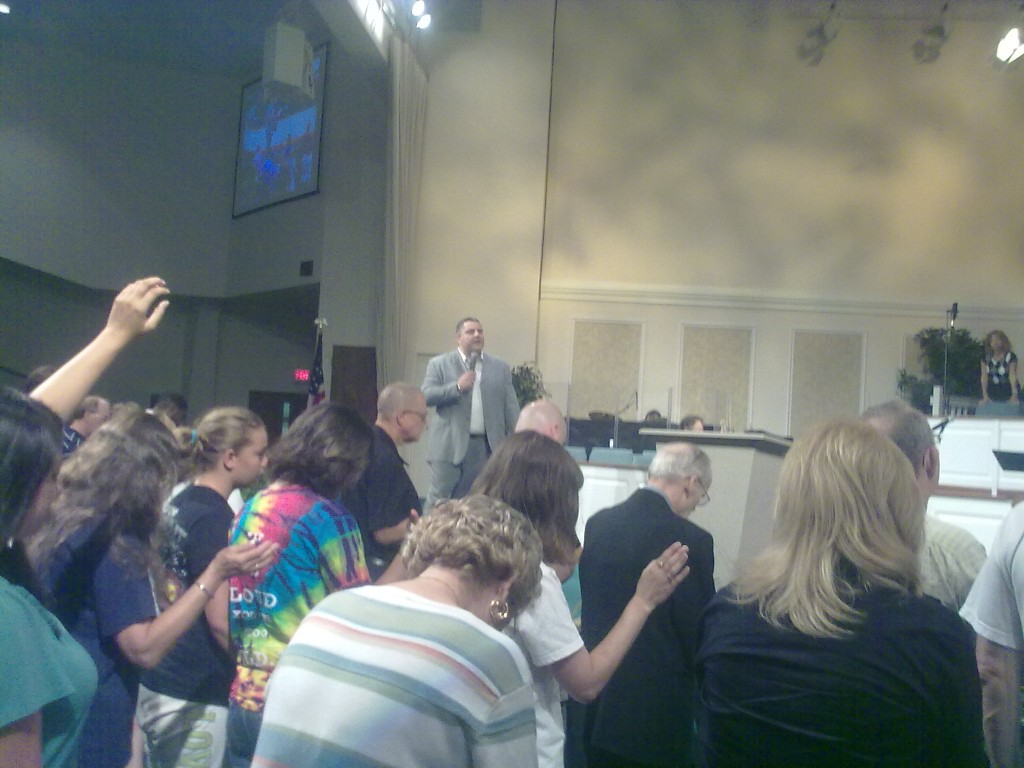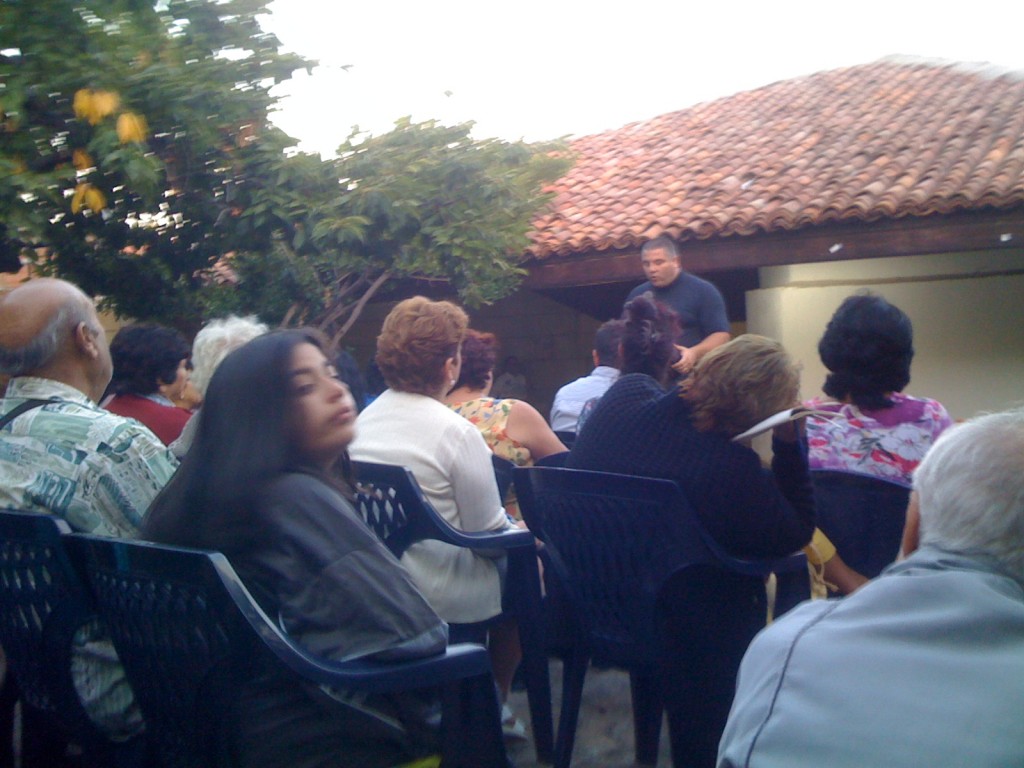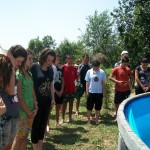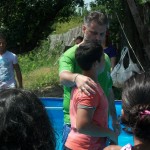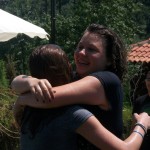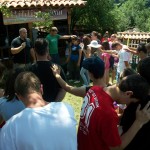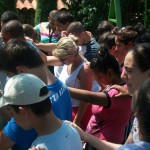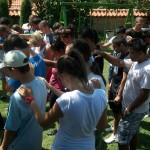Prophetic Presence: The Sign of the Seers
 For many years now, as a student of both Pentecostal theology and history, I have always wondered of the ever-present desire for Pentecostals to associate themselves with physical addresses. It is indeed strange, for as a movement of the Spirit we have always strived to remain on the go, being always persecuted or ever-changing as people of God. So I am astounded every time I come across a historic attempt to redefine our identity with a place or a location.
For many years now, as a student of both Pentecostal theology and history, I have always wondered of the ever-present desire for Pentecostals to associate themselves with physical addresses. It is indeed strange, for as a movement of the Spirit we have always strived to remain on the go, being always persecuted or ever-changing as people of God. So I am astounded every time I come across a historic attempt to redefine our identity with a place or a location.
The examples are many. From the very inception of the term “spirit-filled” people on the day of Pentecost, we have always associated our experience with an attempting to restore the identity of and struggled to return to the spiritual context in the experience of the Upper Room – a definite location in the city of Jerusalem. Then Paul, before ever answering his apostolic call and entering what would turn to a global ministry, was instructed to go the street called “Straight” – and this was not just a personal experience of Paul, but a corporate calling that includes the prophetic gift of another man and affected the future of the Early Church as we know it.
The early Pentecostal revivalists are best known with the name of Azusa Street, but not before establishing various locations across the country setting a spiritual rout, a geographic walkabout from the Bethel Bible College to the Santa Fe Mission, reaching the small house at 214 North Bonnie Brae Street and the Azusa Street Methodist Mission by 1906.
Synan records that there: “They shouted three days and three nights. It was Easter season. The people came from everywhere. By the next morning there was no way of getting near the house. As people came in they would fall under God’s power; and the whole city was stirred. They shouted until the foundation of the house gave way, but no one was hurt.”
But it was not until the morning of April 18, 1906 that the prophetic presence of the Azusa Street Pentecostal revival received its full recognition. Once the Great San Francisco earthquake hit California, just as early Pentecostals had prophesied, there was no need for preaching or witnessing any longer. Their prophetic presence was evidence in full. For the assigned geographical location for our vision contributes little to our identity in the ministry. It is a prophetic sign for the people we witness to. And this is a Biblical principle.
John the Baptist associated his ministry with the desert. John the Apostle, with the island called Patmos. The Old Testament prophet laid on his side for 390 long days being seen by all. That is one long year and one whole month according to the Jewish calendar. Then 40 days more on his other side, just like the bodies of the two prophets will lay dead for the three days of Revelation. The Seers were there, seeing the future and proclaiming it to the present through nothing less than a prophetic presence. For the Seers must be seen in order to reveal the vision they have seen in the Spirit, in order that both the world and church blinded by sin, can see the vision of the unseen and invisible God.
Ministering at Stewart Road Christian Ministries Center
Prophetic Presence in Sliven
In the beginning of 2010, the Lord gave as a word for a New Prophetic Generation in Bulgaria, which we delivered in the Church of God in Gabrovo. The word came from I Samuel and referred to the story comparing Eli and his two sons with Hannah and her Son of promise, Samuel. It opened the door to a new level in our ministry, one we have waited for over 20 consecutive years of ministry.
After preaching over 100 times by 2011, a second word came to us during the Bible Camp we organize each year for young ministers in the Eco Complex of Katunishte in the Balkan Mountains. This word was from Ezekiel chapters 8-11 about the departure of the Glory of God. Virtually all present, over 80 youth leaders from around the country and abroad, testified that the presence during this service was perhaps the most powerful move of the Holy Spirit they have ever witnessed.
Finally, we delivered yet a third message in a more recent service with the Pentecostal Roma Gipsy community in the city of Sliven. It was called “New Prophetic Generation Part 2.” The picture above is from that meeting.
BC/AD 2011 (Bible Camp/All Denominations) in Bulgaria – A New Generation Called to the Presence of God
In order to provide spiritual upbringing for the young ministers, each day followed a carefully prepared schedule beginning with prayer at 6:00am. Dr. Dony Donev delivered the morning messages at 10:00am which continued with a personal time of prayer and reflection. Every afternoon at 4:00pm the youth broke into small groups on the topics of preaching, prayer and fasting, leading worship and healing and deliverance. Missionary Ivo Shatrovsky who has been a guest speaker at previous meetings held a group on Tuesday and spoke about foreign missions. Regional Bishop Vassil Petrov of the Gabrovo Church of God led a study group on the subject of Spiritual Ministry through Healing and Deliverance, Pastor Anton Penev of Reformation Church in Haskovo taught on prayer and praise, while Dr. Dony Donev lectured on preaching and teaching from the Word of God.
During our morning fellowship after prayer, the youth shared their unique calling for the ministry. Some where called to be worship leaders, others to be preachers, several even had a prophetic calling upon their lives and three shared their calling to missions in the Middle East. One of them received a confirmation during the camp that she was accepted to an Arab language studies program at the Bulgarian University of Velik Tarnovo, where she would receive further preparation for her calling.
On Wednesday afternoon six young ministers from our group displayed the results of their week of training and delivered a sermonet on Psalms 23. It was encouraging to see the dedication of these young men and women as throughout the day you would see them reading their Bibles in preparation and hear their prayers coming from unknown places.
A water baptism service was held at 2:00pm on Wednesday where after receiving instruction, 17 were baptized while all sang a Bulgarian hymn with the words “Come to the river with waters of life…”
The water baptism and all other results from the camp came with a direct testimony of experiencing the Glory of the Lord on the mountain. During the alter call following the service on Tuesday night in particular, the presence of God was so evident and powerful that prayers continued long after closing into the night. It was a moment like we have never seen before in our ministry of 21 years. This is a report which is not given lightly and was confirmed by various testimonies. A few follow:
“It has been a long time since I have witnessed a time like this and have felt God’s Glory so powerfully.” ~ Young minister from Haskovo
“From small to large were all one, and Jesus himself was among us. I personally am encouraged by this camp.”~ Regional Bishop Vassil Petrov of the Gabrovo Church of God
“I have never in my life experienced the presence of God so powerfully” ~ Panayot Budinov, Youth Pastor from the Assemblies of God Church in Yambol
“I am certain that the Word that was delivered at this camp will have global results”~ Young person with a Calling for Missions
“Mightily blessed! Outpouring of the Holy Spirit! Prayer, worship and anointing! Baptisms in the Holy Spirit and 17 water baptisms! What else could be said?” ~Pastor Anton Penev
We are waiting and believe that we will continue to receive praise reports from miracles and transformations that happened as a result of Bible Camp 2011. We thank all of those who made this camp a success and as always extend a special thanks to the Eco Complex Katunishte for graciously hosting our event and allowing us to use their facilities.
ALL ABOUT BIBLE CAMP 2011 BULGARIA:
BC/AD 2011 (Bible Camp/All Denominations) in Bulgaria – A Vision of Purpose
BC/AD 2011 (Bible Camp/All Denominations) – God’s Favor Realized
BC/AD 2011 (Bible Camp/All Denominations) in Bulgaria – A New Paradigm for Ministry in the Spirit
Walter Brueggemann: Divine Presence Amid Violence
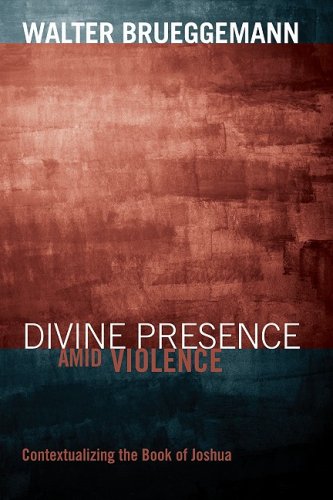 Review by Dony K. Donev, D.Min.
Review by Dony K. Donev, D.Min.
To begin this review quite honestly, I chose the text because of the difficult dilemma it was attempting to resolve, namely violence and the Bible and even more specifically violence and war as ordered by God. The second factor that influenced me was the author. If someone can offer a reasonable apologia on the subject, it is Walter Brueggemann. Of value to my choice was also the perfect timing of the book with the war in the Middle East.
Divine Presence Amid Violence makes clear that aggression in the Bible, and more specifically, aggression that “comes” from God, is not to be against the people, but against the chariots and horses. In the Joshua context, they are the tools used by the evil empire to oppress people and use their labor while holding them in fear. Thus, Yahweh’s command is not to destroy peoples and nations, but to destroy the evil empire that oppresses them through destroying its tools of oppression. This is evident on many occasions in the book of Joshua where cities and ethnos are left untouched by the destruction of Israel’s attack.
One, perhaps shocking, aspect in Brueggemann’s apologia comes in the opening chapter, which deals with meaning and interpretation of the Biblical text before approaching a series of narratives from the book of Joshua dealing with violence in the Old Testament as an order from God. This however, does not give enough reason for the statement in the second chapter that, “It is clear that this text, like every biblical text, has no fixed, closed meaning.”
Brueggemann further asserts that the role of God in the concurring of the Promised Land is merely revelatory. And not just in any context of revelation, but the one of the Land of Promise given to Israel by the God of the Exodus. The command of Yahweh refers to the horses and chariots as tools of an evil empire, the same tools with which Egypt and Pharaoh attempted to stop the Exodus of Israel at the Red Sea. It is from the horses and chariots that the liberated Israel must free the Promised Land, not from people or nations.
A disagreement with Brueggemann for the fundamental Bible scholar here is a must. For it is quite obvious to the reader, that a narrative has a definite and fixed meaning within its own historical context. And while the interpretation of a given passage through various other historical moments or cultural aspects may vary its essence as a piece of history remains intact.
Brueggemann raises an interesting proposal in the conclusion, suggesting that the modern church is often embedded in the culture of chariots and horses, rather than opposing it; thus counter parting a number of modern interpretations of the Kingdom of God and suggesting that with our theology and actions we as people of God are to be liberators from the tools of oppression and not their enforcers.
Prophetic Presence: The Sign of the Seers
 For many years now, as a student of both Pentecostal theology and history, I have always wondered of the ever-present desire for Pentecostals to associate themselves with physical addresses. It is indeed strange, for as a movement of the Spirit we have always strived to remain on the go, being always persecuted or ever-changing as people of God. So I am astounded every time I come across a historic attempt to redefine our identity with a place or a location.
For many years now, as a student of both Pentecostal theology and history, I have always wondered of the ever-present desire for Pentecostals to associate themselves with physical addresses. It is indeed strange, for as a movement of the Spirit we have always strived to remain on the go, being always persecuted or ever-changing as people of God. So I am astounded every time I come across a historic attempt to redefine our identity with a place or a location.
The examples are many. From the very inception of the term “spirit-filled” people on the day of Pentecost, we have always associated our experience with an attempting to restore the identity of and struggled to return to the spiritual context in the experience of the Upper Room – a definite location in the city of Jerusalem. Then Paul, before ever answering his apostolic call and entering what would turn to a global ministry, was instructed to go the street called “Straight” – and this was not just a personal experience of Paul, but a corporate calling that includes the prophetic gift of another man and affected the future of the Early Church as we know it.
The early Pentecostal revivalists are best known with the name of Azusa Street, but not before establishing various locations across the country setting a spiritual rout, a geographic walkabout from the Bethel Bible College to the Santa Fe Mission, reaching the small house at 214 North Bonnie Brae Street and the Azusa Street Methodist Mission by 1906.
Synan records that there: “They shouted three days and three nights. It was Easter season. The people came from everywhere. By the next morning there was no way of getting near the house. As people came in they would fall under God’s power; and the whole city was stirred. They shouted until the foundation of the house gave way, but no one was hurt.”
But it was not until the morning of April 18, 1906 that the prophetic presence of the Azusa Street Pentecostal revival received its full recognition. Once the Great San Francisco earthquake hit California, just as early Pentecostals had prophesied, there was no need for preaching or witnessing any longer. Their prophetic presence was evidence in full. For the assigned geographical location for our vision contributes little to our identity in the ministry. It is a prophetic sign for the people we witness to. And this is a Biblical principle.
John the Baptist associated his ministry with the desert. John the Apostle, with the island called Patmos. The Old Testament prophet laid on his side for 390 long days being seen by all. That is one long year and one whole month according to the Jewish calendar. Then 40 days more on his other side, just like the bodies of the two prophets will lay dead for the three days of Revelation. The Seers were there, seeing the future and proclaiming it to the present through nothing less than a prophetic presence. For the Seers must be seen in order to reveal the vision they have seen in the Spirit, in order that both the world and church blinded by sin, can see the vision of the unseen and invisible God.


